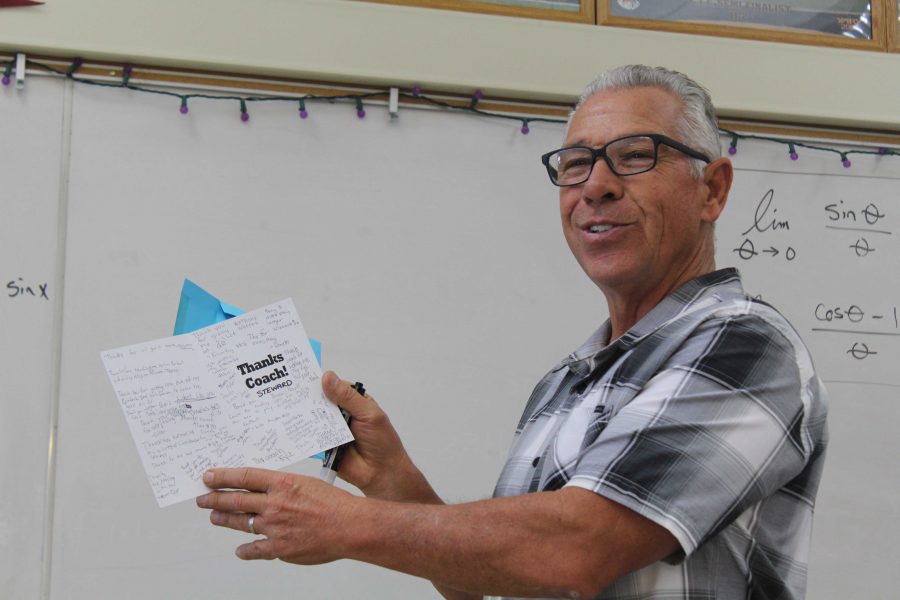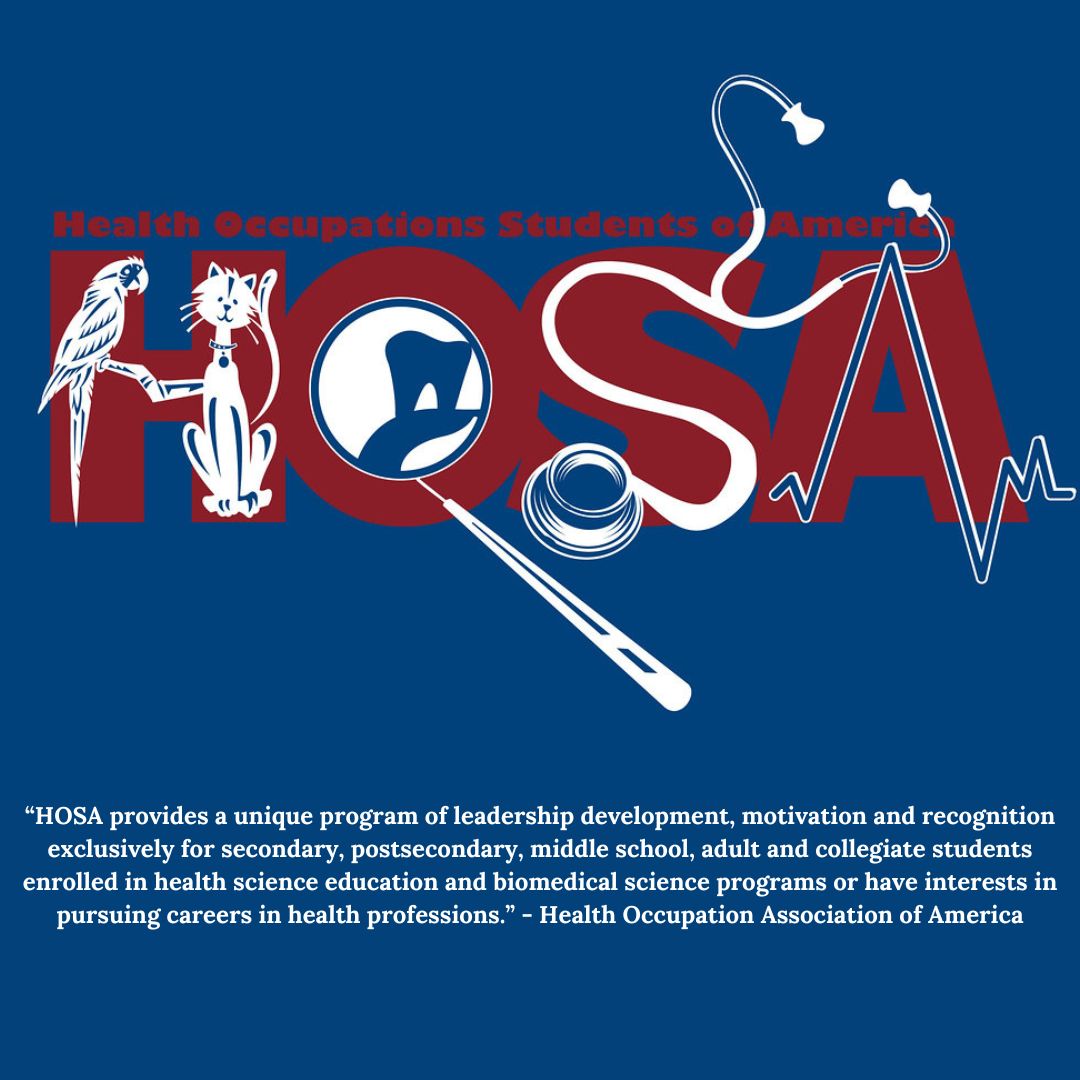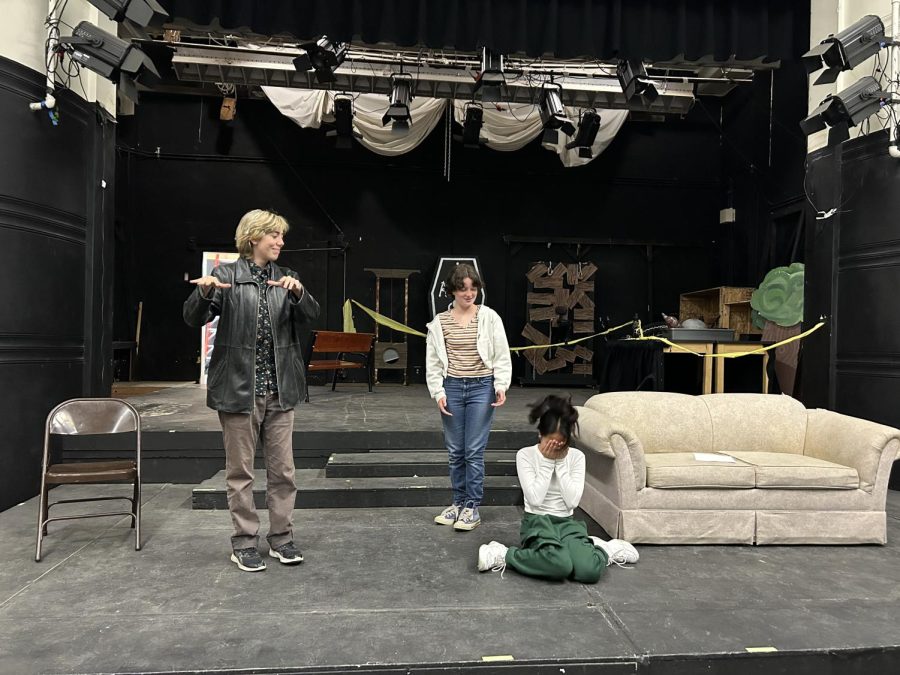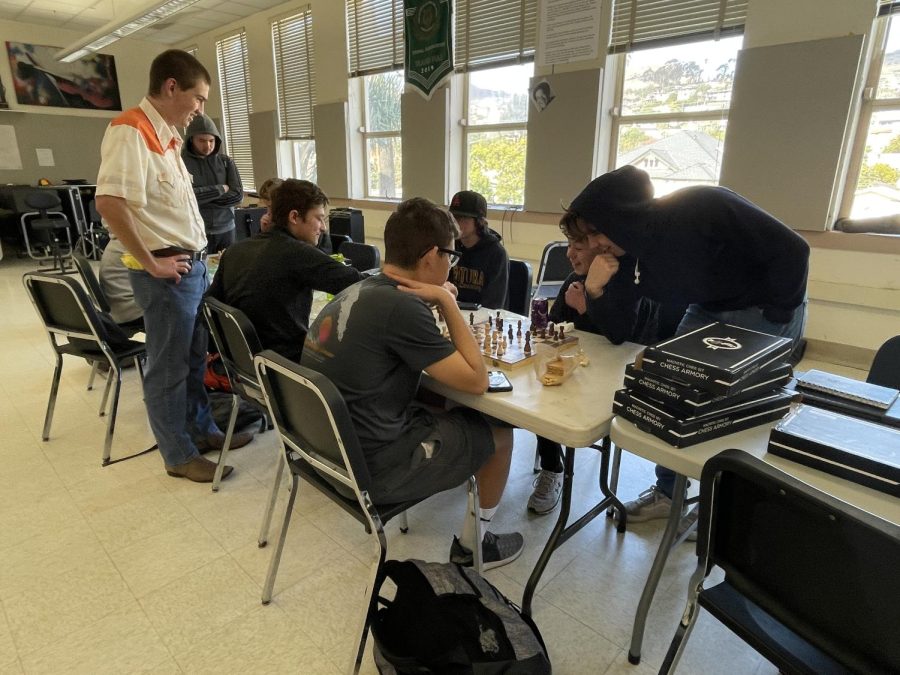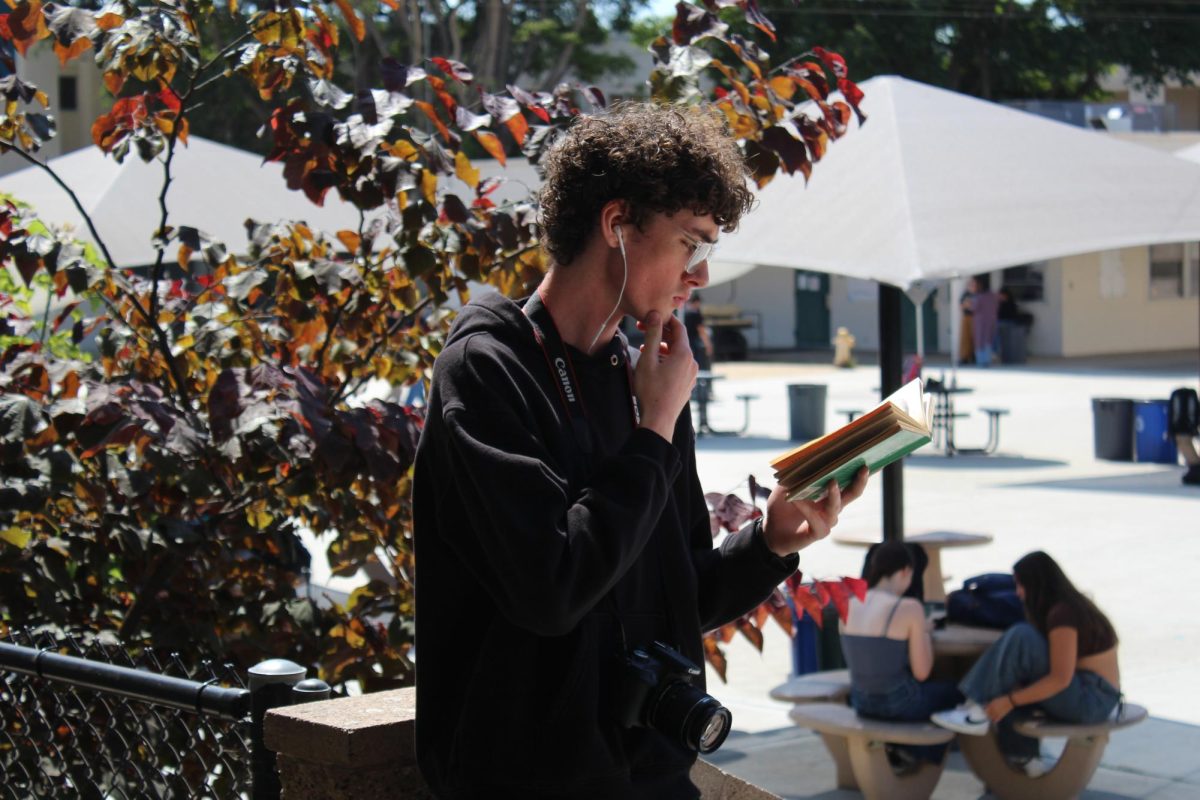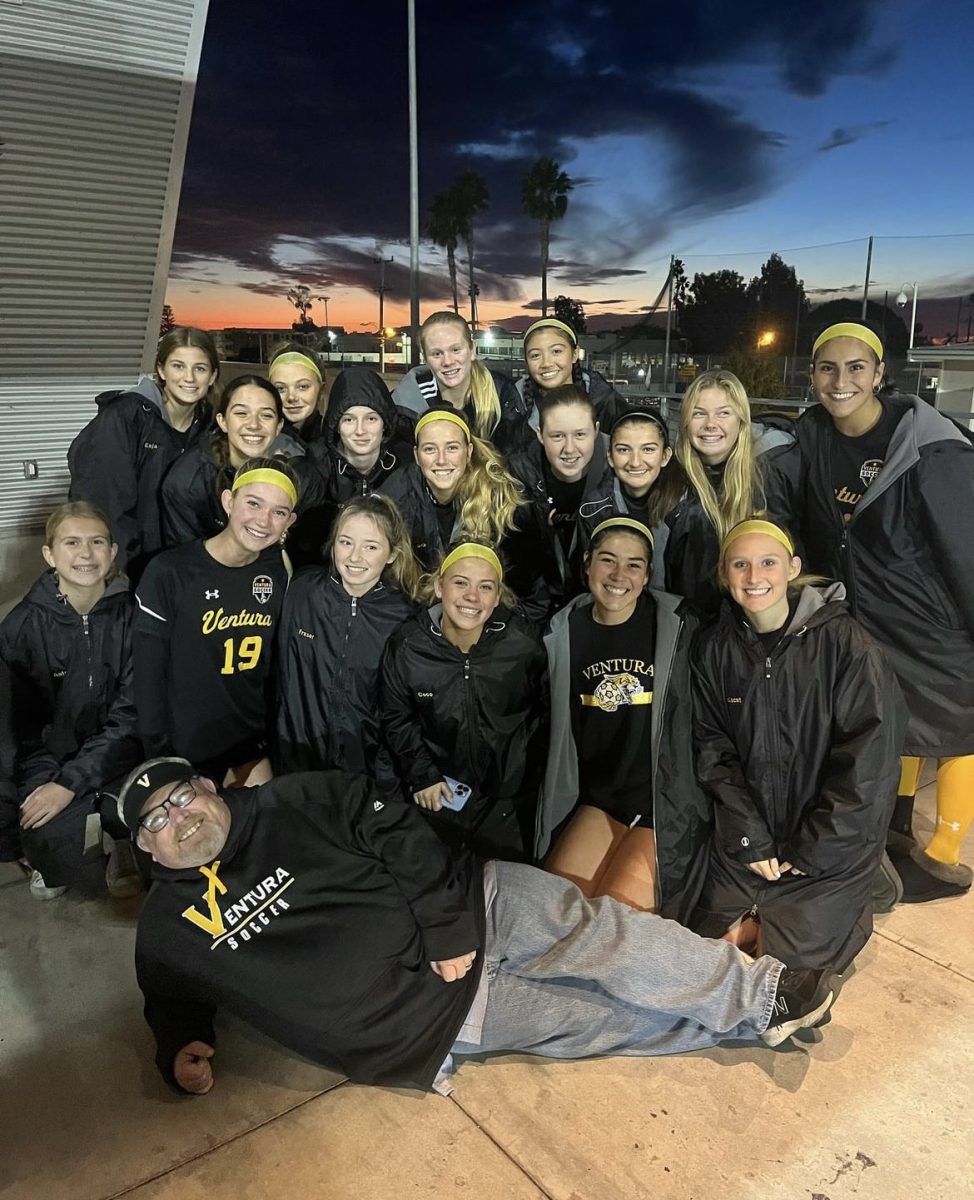Some might know Ventura High School math teacher Brad Steward by his sometimes philosophical math lessons and choice to use the term “opportunity” instead of test. Others might know him as the freshman football and golf coach who took the 2000s varsity team to CIF and won against Arroyo Grande.
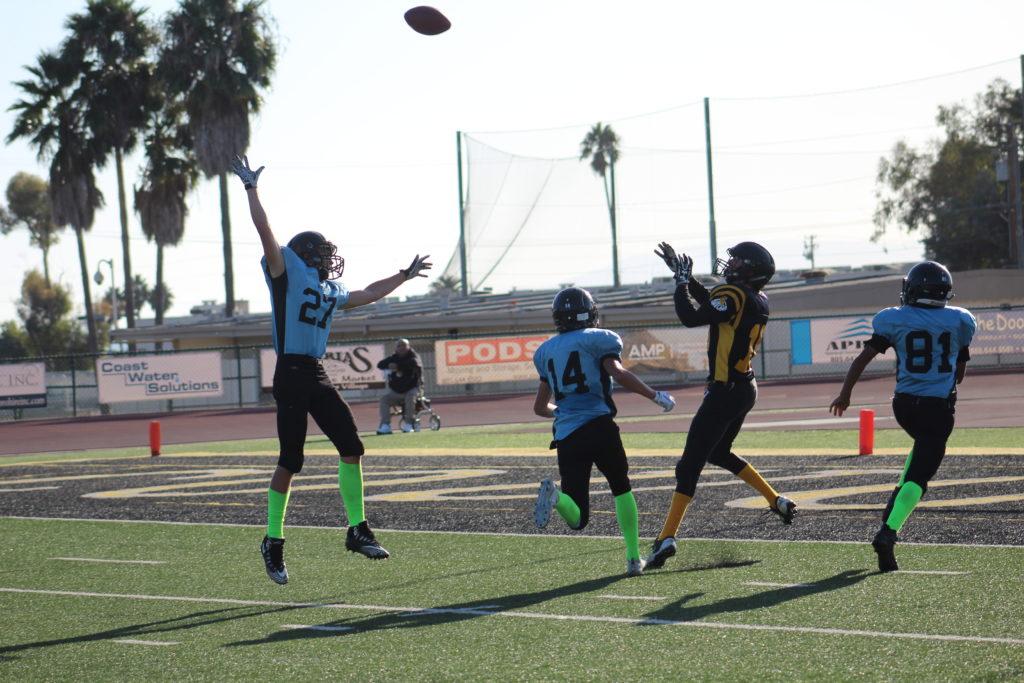
Steward moved to Ventura in the seventh grade, attending Cabrillo Middle School and VHS, where he lettered in football, wrestling and track. After graduation, Steward went to Ventura College for two years, then transferred to the University of Redlands where he received his bachelor’s degree in biology. He then went on to earn his teaching credentials at Cal State Lutheran University.
Steward began teaching algebra at VHS in 1986 after teaching one year of seventh and eighth grade science at Cabrillo Middle School, when he quickly realized he was more interested in teaching math than science. He took time to work in the petroleum industry in the Ventura, Santa Paula, Fillmore and Ojai area as an environmental specialist then “got to see the engineering side of [the job] and liked that” and went to night school at the University of Southern California to get his masters in engineering.
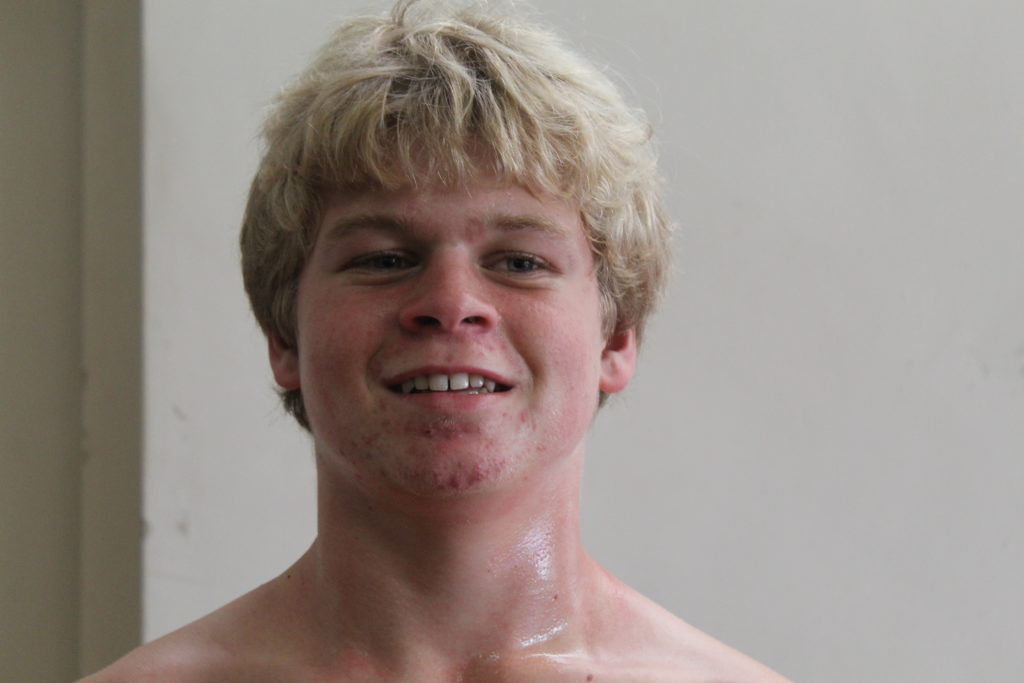
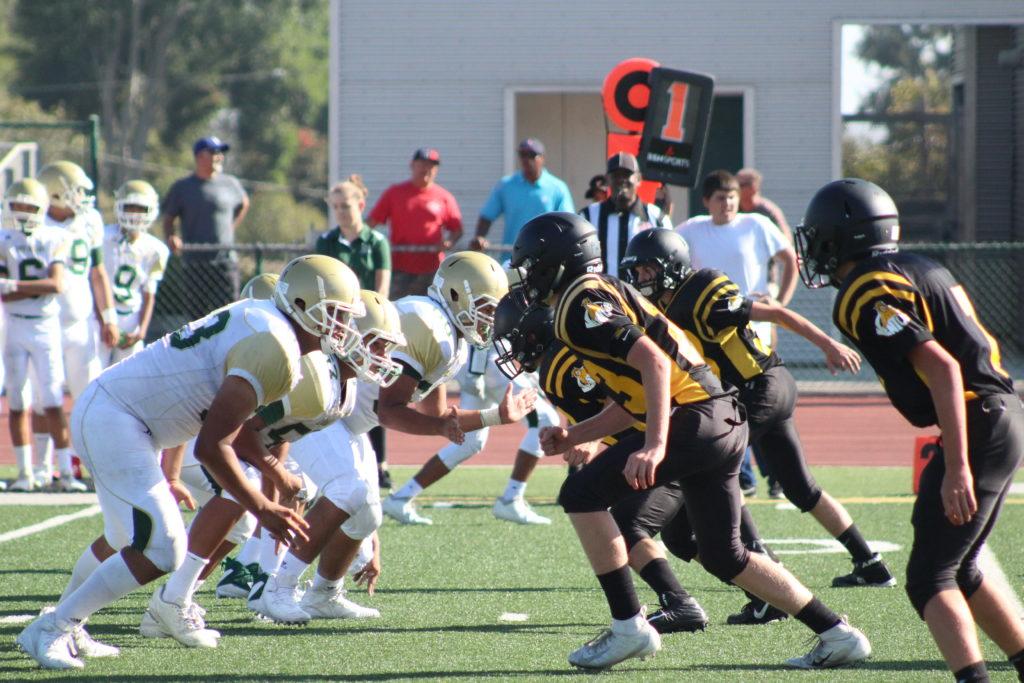
Now Steward teaches four periods of Calculus and Math 3H at VHS. When asked his strategy of getting students to actively learn and care about the subject matter, Steward said, “I try to be enthusiastic when I teach and point out when things are important and I try to relate to them and understand what’s going on in their life; if I know a kid is on the football team I’ll engage them in conversation….same with drama and music.” To prepare for the AP Calculus test, Steward mentioned that “last year [they] did study sessions five weeks [before the test] on Tuesday and Wednesday nights [in my classroom] for a little extra emphasis.” If you happen to be looking for free tutoring, these study sessions will be happening this year as well.
Steward has been coaching football at Ventura High School for twenty years, alternating between the different levels. As of now, Steward sticks to coaching the freshman team. When asked about the difference between coaching the freshman and varsity teams, Steward said, “[We teach the freshman] really basic fundamental things. We’re really trying to instill good habits and fundamentals on the freshman level whereas at the varsity we get to talk about the nuances and fine points of the game with those guys because they’re a little more sophisticated.”
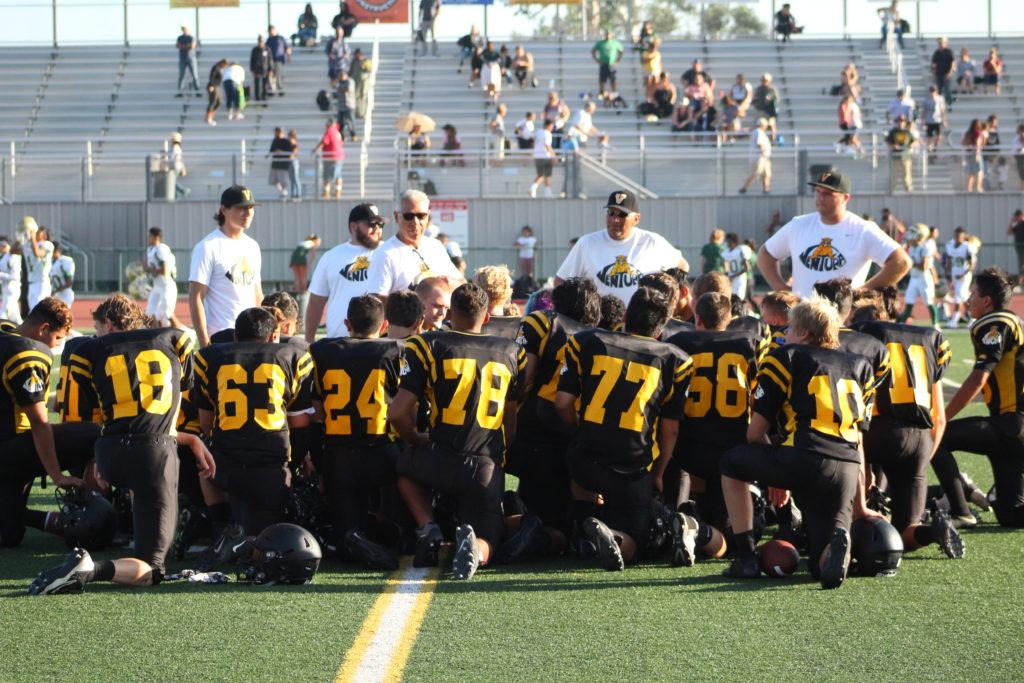
According to Steward, motivation is a big part of the mental side of football. We asked Steward how he gets his players motivated, he responded that, “A lot of what we try talk about is how the game itself is a metaphor for life and how hard work builds success in life and hard work in practice builds success in the game. Everybody wants to win [the game] on Thursday afternoon but it’s the guys that want to work Monday, Tuesday, Wednesday… that are going to have the most success and who are going to win more.”
About the intersection of learning between athletics and academics, Steward said, “I do think that a well rounded education has to do with not only learning in a classroom. I think athletics provides all kinds of opportunities for unique lessons that maybe we don’t get to learn in the classroom.” He mentioned that playing football in the Sky Act of Southern California Intercollegiate Athletic Conference impacted this on him, saying, “the philosophy there is that [athletics are] part of a well rounded education. That’s the philosophy that I came from and it’s part of who I am now.”
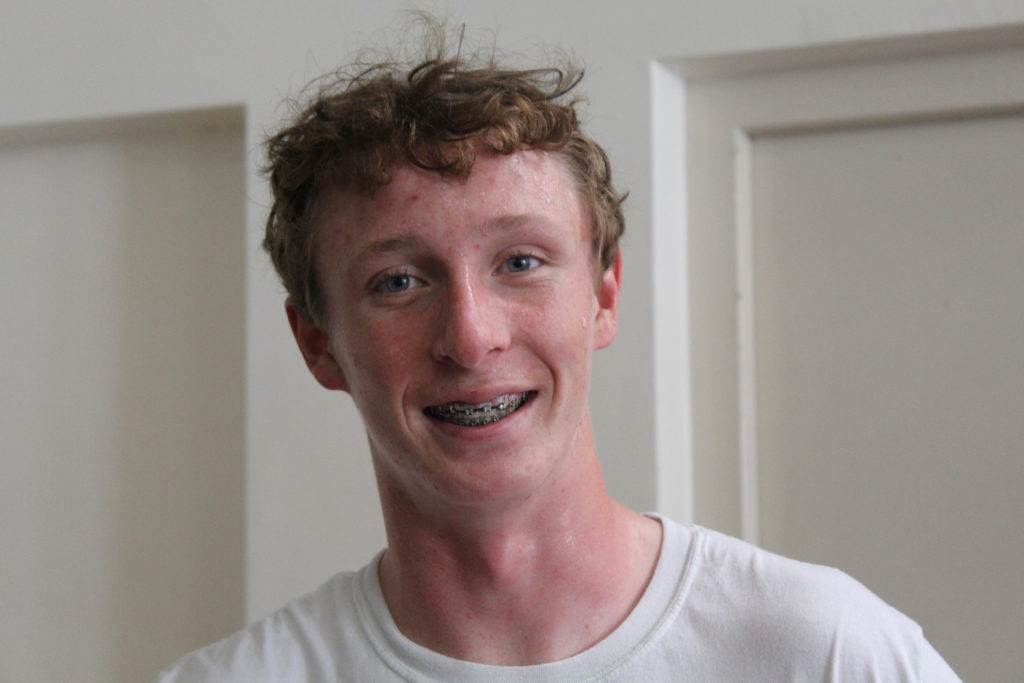
Considering the lack of experience- only eight out of the 53 player freshman team had ever played football before – the team had a successful season: 6-3-1.
Freshman football had a rough schedule at the beginning of the year, playing Newbury park, Camarillo, and Hart, which all have larger freshman teams. When asked about the toughest game, Steward named the loss to Rio Mesa, saying, “We didn’t have a running back to use that week and we were all banged up coming out of playing [those teams]…in a row. All big bodies, big physical teams and we were kind of beat up by the time we got to Channel League. Then when we got healthy again we beat all the other [teams].”
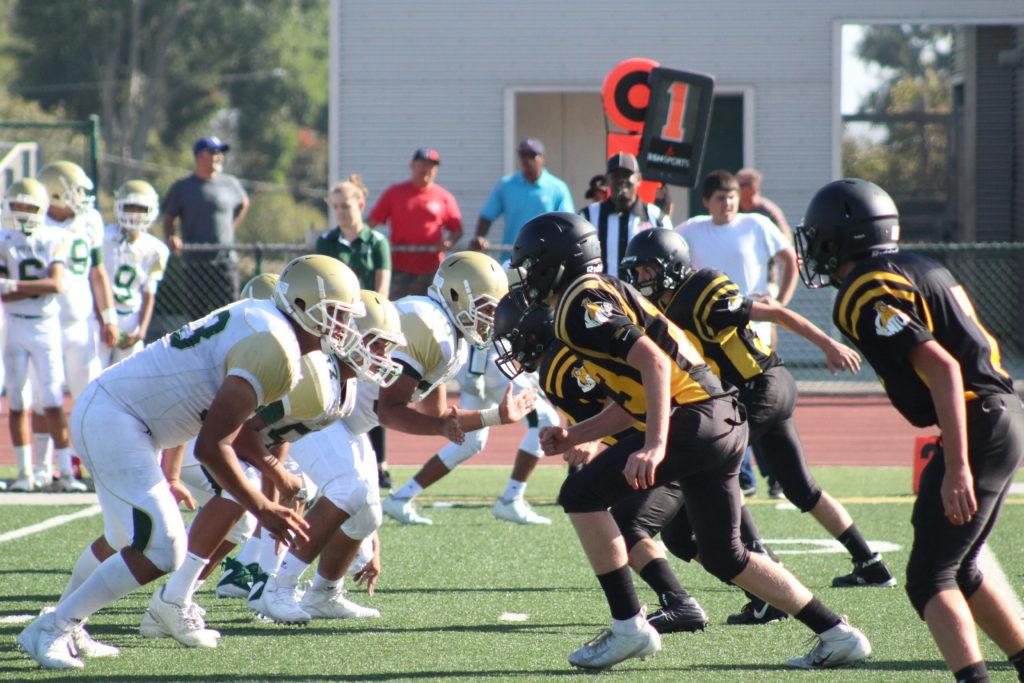
The team’s work out schedule during the week is pretty standard. Monday is the team’s learning day. Steward commented that on mondays, “[We’re] teaching the guys what the other team’s defense is and how we’re going to attack their defense. [We’re learning] what the other team runs on offense and how we’re going to try to defend what they’re running.” Tuesday is the team’s rep day where they put what they were taught about into action. Wednesday is their pregame practice which is mostly review of formations and such. On Friday, post-game, the team gathers in Steward’s classroom to watch game film and crack jokes while studying their mistakes.
When asked how he transforms the freshman players into what they become on varsity, Steward said, “Every year I’m amazed at the progress the guys make…They just get better every year and I think that’s because we have good coaches at every level of our program. It’s a very organized, well run program.”
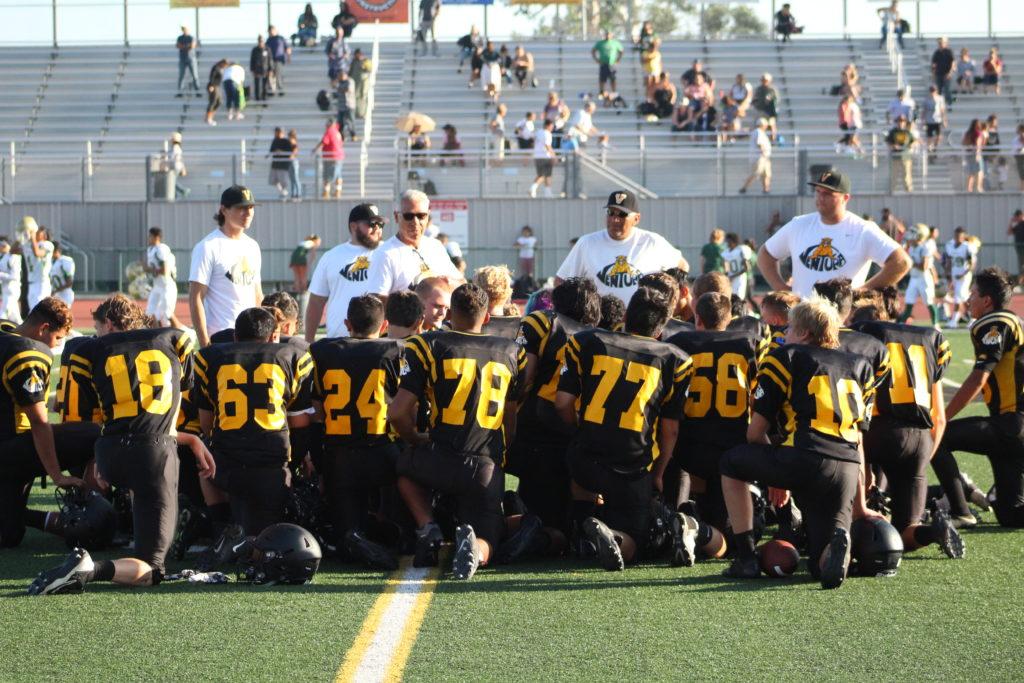
Although saying that he’s constantly changing his mind between which he likes more -coaching or teaching- Steward said, “I got into teaching so I could coach and now the teaching is really becoming fun for me, [although] it’s changing all the time. It’s very gratifying to see the students learn and do well and how they’re able to see things from a different perspective than they did before – if I’ve shown them something and it’s given them the knowledge to look at something in a new light.” Regardless of the subject, he named his favorite part of being an educator to be, “the interactions I get to have with the students and working with kids that are excited about learning new things.”
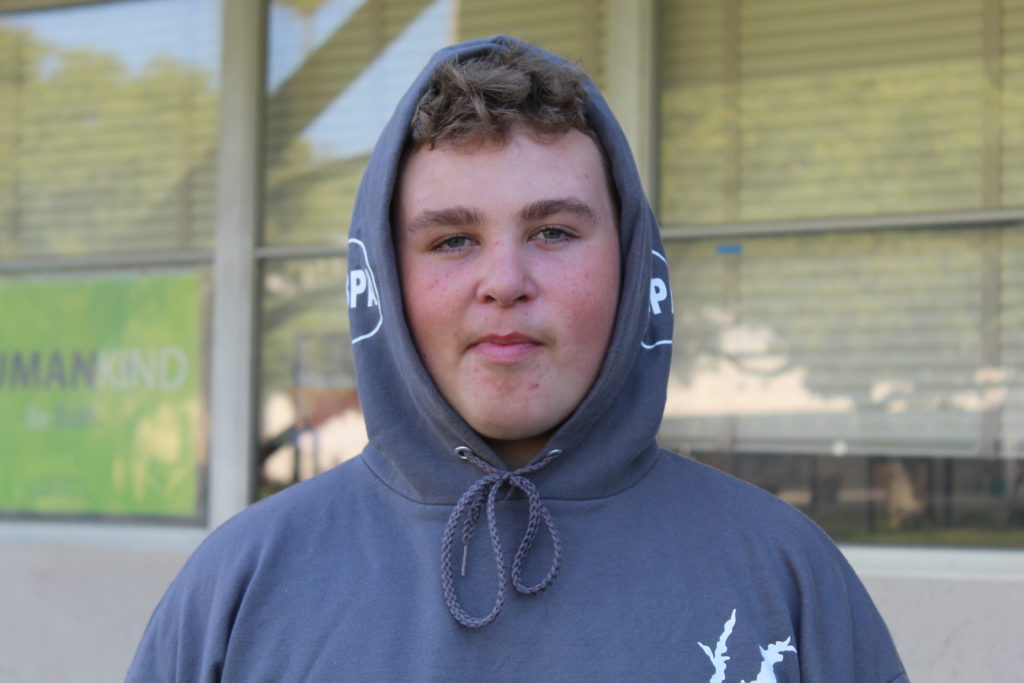
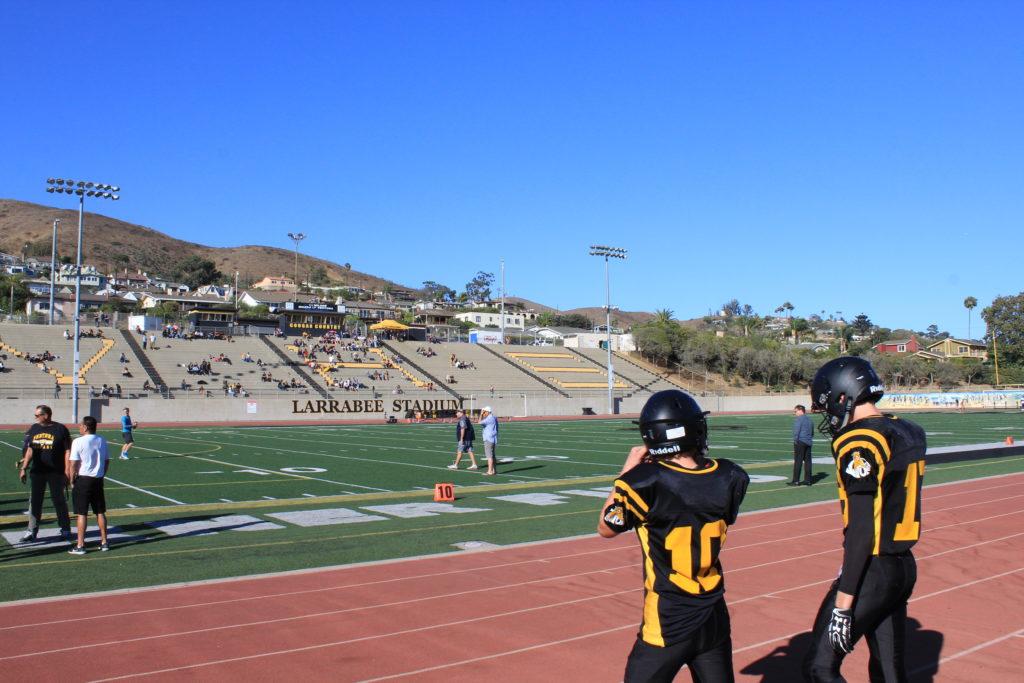
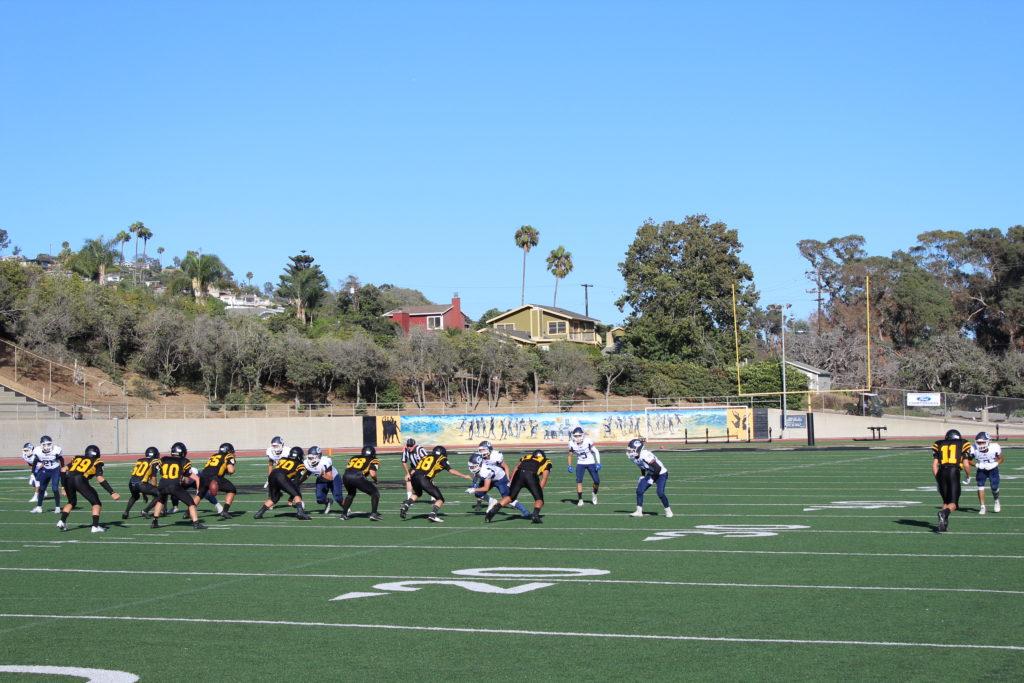
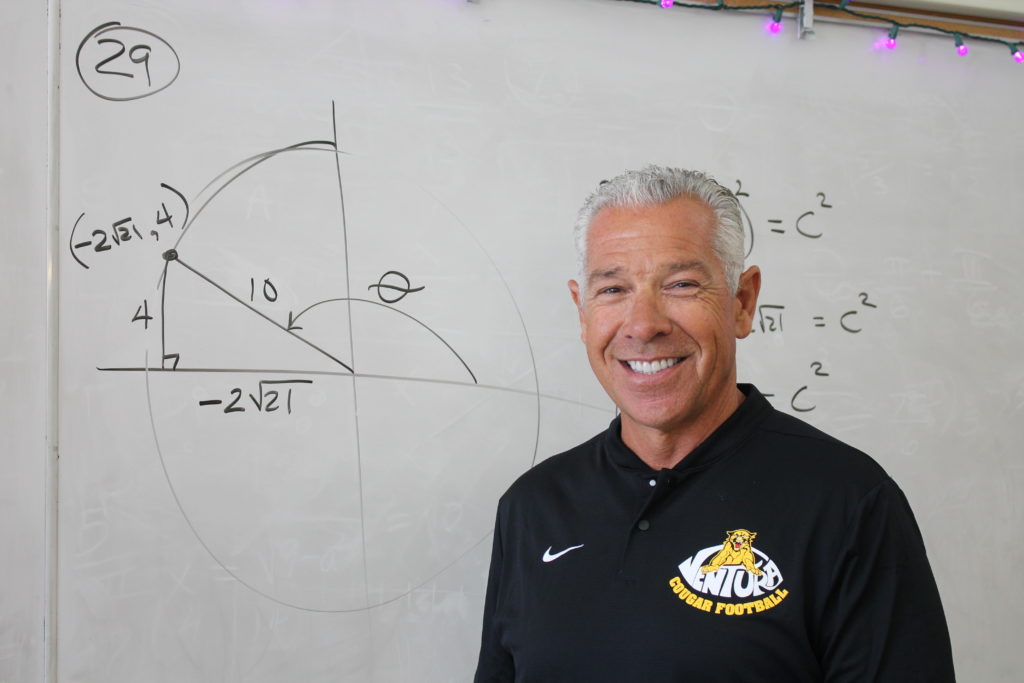
Photo by: Lola Bobrow



